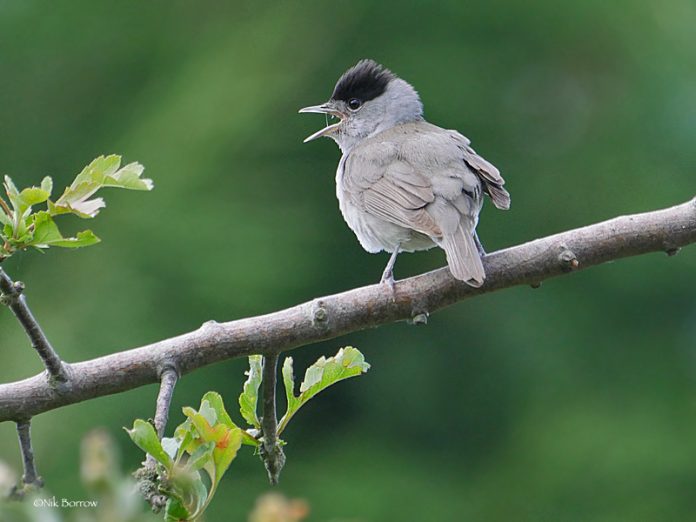Autumn 2017 marked another bloody season for Cyprus’ songbirds. Their mass slaughter – a savage practice – is popular in several parts of the island, mainly in the regions of Famagusta and Larnaka.
To trap them, poachers use nets and lime sticks in the areas where these migratory birds rest during their autumn and spring passages. Once trapped, the birds, called ‘ampelopoulia’, suffer hours of agony before they are strangled and sold to local restaurants and private consumers for high prices.
This is strictly illegal in Cyprus, as well as in the European Union, and is part of the activities of the organised crime. But the poachers and the dealers are protected by local politicians and corrupt civil servants.
Two months ago, one police officer, whose life was threatening by the poachers, took to the Attorney General. He disclosed how criminal networks work to intimidate and corrupt.
Huge revenue
The entire criminal operation is organised on an industrial level. The poachers take to public lands – areas managed by Cyprus’ defence ministry and territories belonging to the British military. They (without permission) plant Australian acacias, a tree completely exotic to the island, but very useful for their operations.
For example, poachers plant the Australian acacias in the area belonging to the defence ministry in order to lure the birds. A whole system of irrigation tubes is also installed. The area is then loaded with long nets and lime sticks. The agony for the trapped birds is guaranteed.
According to Martin Hellicar, director of BirdLife Cyprus, “the worst bird killing hotspot in Cyprus remains on ministry of defence land”.
The birds are then openly sold to restaurants in the zone as a local delicacy. Critics argue that police operations against the restaurants are weak and rare.
A dozen of the tiny killed birds cost, on the black market, between €50 and €80! Cypriot authorities estimate that the annual revenue of this “business” is a whopping €15m. Cash and black!
The environmental cost
Although the practice is old, monitoring only began in Cyprus in 2002. According to some estimates, there has been a 183% increase in the number of nets since then.
The year 2014 was the worst to date. An estimated 2.5 million birds were killed.
In 2016, and only in the area of the British military base, as many as 800,000 songbirds were poached (while 2.3 million birds were the slaughtered throughout the island).
Although the ‘ampelopoulia’ are a specific genus of birds, the nets do not discriminate. As a result, 155 different species of birds are trapped. Worse still is that 78 of these species are on the list of endangered species.
Laws that do little
Efforts to raise public awareness against the slaughter of the songbirds started many years ago. The nets used to trap the birds were rendered illegal back in 1974. The 1979 international treaties of Bern and Bonn were both incorporated into the national legal system, prohibiting the sale and possession of these trapped birds.
In addition, national law (152(I)/2003) declared the trapping of the birds illegal, as did the EU directive 2009/147/EK.
Last summer, the government of Cyprus sponsored a national campaign against trapping and eating the ‘ampelopoulia’ and new efforts to implement the law were launched.
But what the law says is not always respected by humans.
Local communities and politicians in the above mentioned areas have reacted against the law. Even a member of parliament posted on Facebook a photo of a plate of ‘ampelopoulia’ and a wish to stop the criminalisation of this tradition.
Poachers and their supporters blocked the removal of the acacias from public lands. The state abandoned such efforts in 2016.
In the British Sovereign Base Area, the police force has confiscated nets on many occasions. But the poachers threaten the personnel of the military facility. What is more, there was a report of nine hours of tension between British soldiers and residents of the Xilogagos village when soldiers tried to remove the illegally planted acacias.
In late October this year, a mass rally was organised by poachers in the town of Paralimni (situated in the southeast of Cyprus, within the Famagusta District and centre of such activities). This was backed by the locals, as well as the mayor and an Archimandrite of the Cypriot Orthodox Church.
Corruption
Last October a policeman unveiled the deep routes of the problem by testifying to the Attorney General of Cyprus. He said he had received threats against his life from a protection racket involved in the trapping and trade of the ill-fated songbirds.
He accused local police officers of helping known poachers and illegal dealers and that although their actions are well known the authorities do not issue warrants for their arrest.
Threats against environmentalists and activists of the Committee Against Bird Slaughter (Cabs) are often reported as well.
It seems that the organised crime is quite a ‘state within a state’.
Intimidation is the poachers’ practice.
The European Union has warned Cypriot authorities and called on them to enforce the law. But this does not seem to be enough. It is necessary to combine pressure by EU institutions and British authorities to back the efforts of the authorities of Cyprus, as well as those of the social movement involving activists and environmentalists. This is perhaps the only way to fight against the strong criminal network that is responsible for the slaughter of the songbirds.

